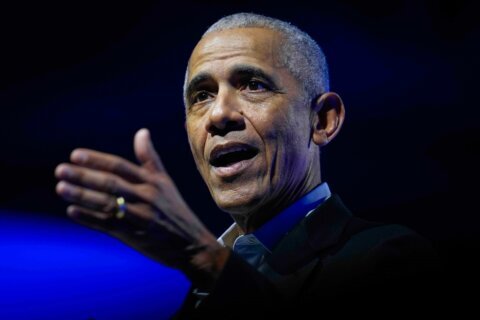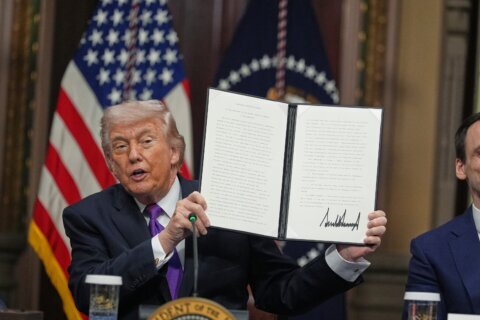This article was reprinted with permission from Virginia Mercury.
Flavored vape products lacking Food and Drug Administration approval could be pulled from Virginia shelves, as a pair of identical bills head to Gov. Glenn Youngkin’s desk for his signature.
Del. Rodney Willett, D-Henrico, and Sen. Creigh Deeds, D-Charlottesville, say their bills would help to eliminate the 50% of illegal, unregulated vapor and e-cigarette products currently being sold in the commonwealth. Both lawmakers said the bill’s intent is to also curb underage vaping, as no flavored e-cigarettes or vapes are currently FDA-approved which they say is to deter youth consumers.
“It’s a very serious situation and what this bill is intended to do is protect children,” Willett told the Virginia Mercury in an interview last week. “It’s to protect adults who are lawful consumers and then also the wholesalers and retailers themselves.”
Willett said the bills would create a registry of non-flavored products that can be sold in the commonwealth which are FDA-approved and currently undergoing the agency’s application process, of which there are “literally thousands.”
Deeds told the Mercury last week that the registry’s purpose is to identify “products that have been inspected and authorized and somebody’s looked at them.”
Both legislators said several businesses have sent them letters in support of the bill because they want to make sure they’re selling legal products. Willett said the businesses also “want to protect legal consumers from ingesting undisclosed, harmful chemicals that are found in the unlawful vaping products.”
Representatives from tobacco company Altria emphasized the bill would provide clarity for retailers as to which devices they can and cannot sell. The company, which also owns cigarette brand Phillip Morris, is the only one in the state with FDA-approved vapor products.
Altria spokesman Steve Callahan told the House of Delegates’ ABC and Gaming Subcommittee in February the legislation “is a common sense solution.”
However, opponents of the bill said it serves to only benefit big tobacco companies at the expense of small businesses and Virginians trying to quit smoking through vapor products.
Tony Abboud with the Vapor Technology Association said there are currently 13 million vapers across the U.S., yet only six different types of FDA-approved e-cigarettes are currently on the market. He said tobacco companies like Altria would reap the benefits from the legislation and compared the bill to a scenario in which all beer except for Bud Lite and Miller Lite are removed from stores.
“Bud and Miller would love it, right, because they are definitely going to pick up some more customers,” Abboud said in an interview.
A 2023 Yale University study found in the seven states that ban flavored e-cigarettes, smokers were more likely to turn toward traditional cigarettes.
Abboud has also heard concerns from businesses that they’re frightened their customers may turn back to smoking cigarettes or other harmful methods if the bill passes and they can’t buy their favorite vaping product.
“If you think about it, you remove all of these products from the market that so many people are using, they’re either going to go back to cigarettes,” he said, “or if they’re committed to this product — which many, many are — they’re going to go find it on the black market.”
Unintended consequences?
A letter sent last month from Sen. Glen Sturtevant, R-Chesterfield, to Gov. Glenn Youngkin highlighted several other concerns about the bill, including major economic losses for Virginia, “draconian” penalties for noncompliance and an extremely selective and time-intensive FDA approval process.
Sturtevant, the only legislator to vote against the bill, told the governor the economic repercussions of enacting the bills “cannot be overstated.” An analysis of the bills by economic research firm John Dunham and Associates included in Sturtevant’s letter projects nearly 1,820 Virginians would lose their jobs and the state would suffer a loss of $252.8 million in economic activity if the commonwealth bans flavored vapor products.
He referenced Chesterfield-based vape company Avail Vapor, which was forced to close in 2021 because of “significant FDA red tape and regulations that were put in place,” Sturtevant said, causing a lot of people to lose their jobs.
He added the civil penalty for noncompliance with FDA standards — $1,000 per day for each non-permitted product — is “draconian.” Sturtevant said it can easily add up to $50,000 in fines, even though he said other crimes in Virginia don’t come close to carrying similar penalties — even first-degree murder. Businesses could also incur additional losses, he said, if they aren’t able to sell all of their non-FDA approved products before the law goes into effect July 1.
“Our focus should be on measures that genuinely protect our youth, support adults in their efforts to quit smoking, and preserve the livelihoods of those employed by the vaping industry,” Sturtevant said.
Additionally, he pointed out the FDA’s Premarket Tobacco Product Application process, which Deeds and Willett’s bills utilize as a foundation for regulating vapor products, has been deemed unlawful by the 5th and 11th federal circuit courts.
In both cases, the court ruled the FDA had been “arbitrary and capricious” when considering which companies and products it approves, forcing the agency to reconsider its decisions.
Dylan Bishop with the Virginia Smoke Free Association told the House ABC and Gaming Subcommittee in February that since the FDA’s application process was established in 2019, the approval rate for vaping products is 0.00001%.
While Willet acknowledged that the FDA process can be selective and take a long time, it’s important to get approval because many vape products are made in China, which he said is a “completely unregulated and untaxed market in most cases.”
However, Tom Beaudet, CEO of Virginia-based regulatory and scientific advisory company Accorto Regulatory Solutions, said the Chinese government issued a statement this month to their vape manufacturers selling products in the U.S. saying they needed to follow proper regulations and go through the FDA approval process.
“There’s nothing that has the potential to have the positive impact on the U.S. public health as these products,” Beaudet said. “Unfortunately, there’s so much politics behind it and there’s so much negative influence from the tobacco companies.”
Nevertheless, Deeds and Willett remain committed that their bills are taking a much needed step towards protecting children from illegal, harmful products.
“In some cases, we need to put the interests of our children over those adults who are looking for more choice,” Willett said. “There are choices for adults, it’s just they’re limited in order to protect children.”
The deadline for Youngkin to veto or sign the legislation into law is April 8.
Deputy Communications Director Macaulay Porter told the Mercury, “the Governor is reviewing the legislation that has been delivered to his desk.”







